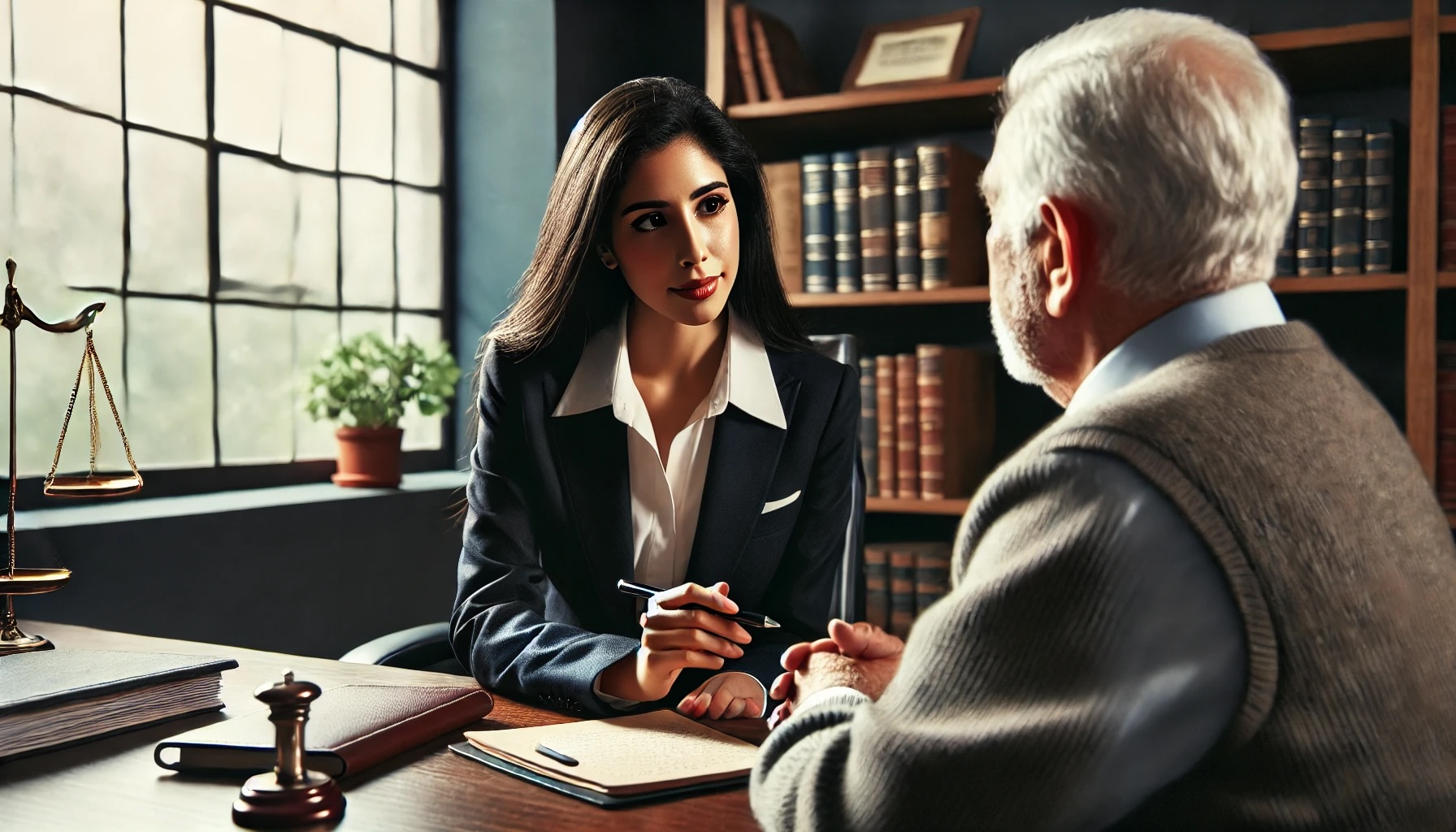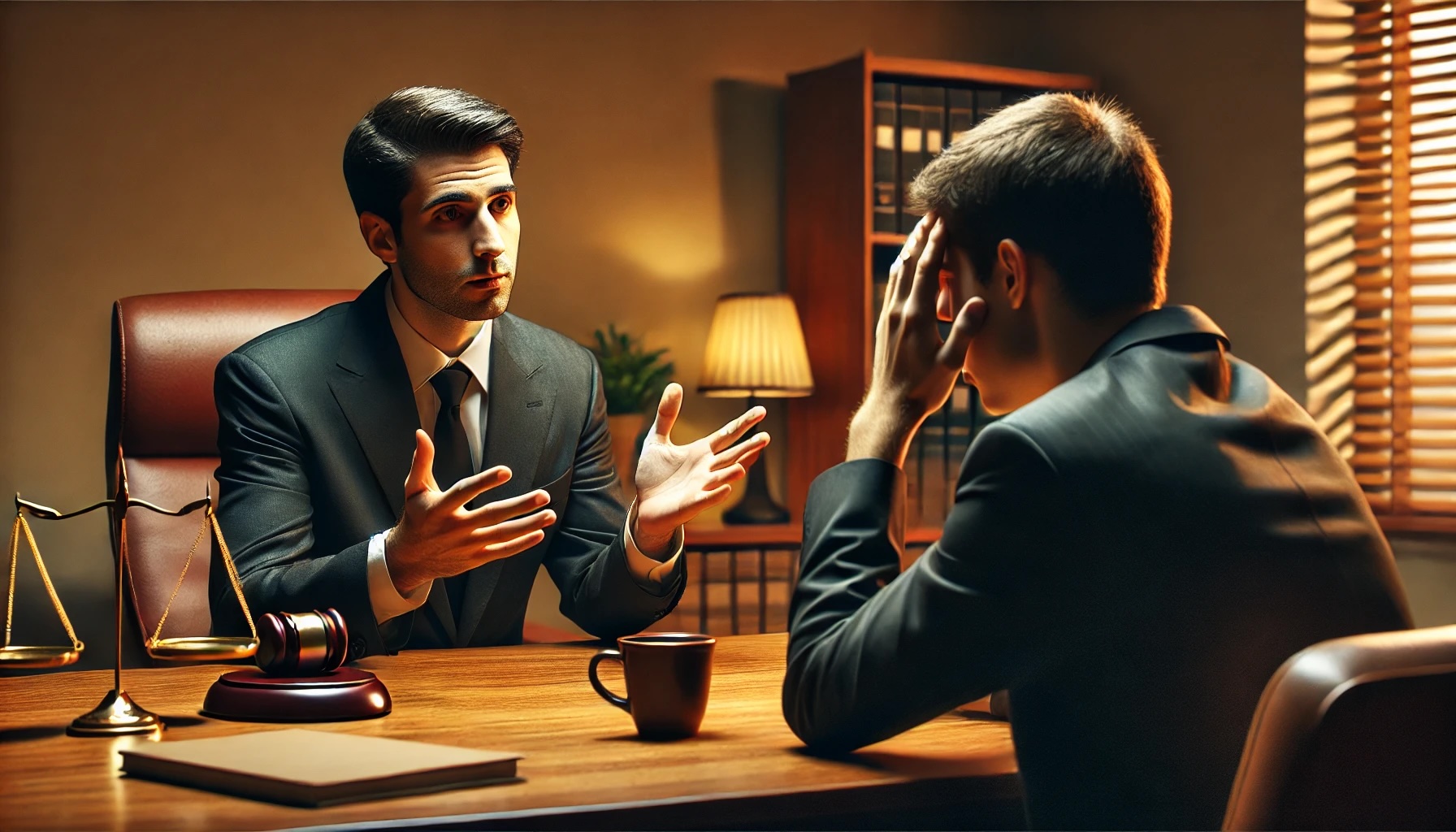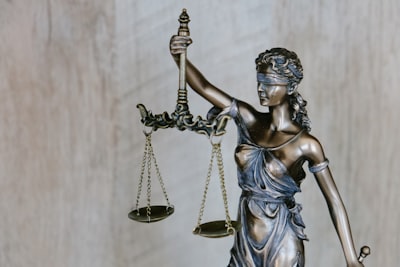www.IlyaLaw.com Tel. 602-899-3035

Witness preparation or training is crucial to advancing legal proceedings during deposition or trial. Effective testimony significantly impacts outcomes, making preparation essential in trial and litigation strategy and planning. This blog delves into the often-overlooked element of trial and its influence over results in the court of law.
The Crucial Role of Witness Preparation
While some witnesses present with excellent skills of communication, effective testimony is rarely a product of luck. Preparation plays a crucial role in cultivating compelling testimony. Sadly, many lawyers succumb to the notion that a “bad witness” will have to be tolerated because they lack the understanding that great testimony is a multi-step process that can be carefully executed with planning and understanding. Or, they may miss the opportunity to make a “good” witness exceptional. Through proper preparation, witnesses can gain confidence, clarify their understanding of how their testimony fits in the case, anticipate areas of challenge in cross-examination, learn to manage unwanted emotional reactions, and enhance overall communication skills to deliver precise and compelling evidence. Trial lawyers understand the importance of witness prep in presenting a convincing case to the jury or judge. By ensuring time and resources dedicated to delivering a well-prepared witness, trial lawyers will increase the chances of achieving favorable outcomes.
Witness “Coaching” is Not Witness Preparation
Witness preparation can draw upon several disciplines, including psychology and human behavior. The witness may require simulations of cross-examination and direct examination in order to understand both and clarify the type of testimony expected. Also, with experts, there may be training tailored to their field of study. In all of these settings, however, the consultant or lawyer must refrain from “coaching” in order to deliver specific content. Obviously, this is ethically treacherous territory, but it also leads to disappointing results. “Coached” or “rehearsed” answers overwhelm people likely already nervous about giving testimony. Even well-meaning attorneys who seek to construct a witness’s answer end up sorely disappointed with a witness who cannot hold the “coaching” when it counts.
Similarly, teaching witnesses how to dodge questions or be evasive is ineffective, as they come across as contrived and unlikeable to most jurors and judges. In this way, effective preparation specifically avoided coaching to give specific answers to specific questions or teach the witness how to sidestep difficult questions. These types of measures should be avoided. A much more potent preparation consists of the witness learning to answer questions truthfully, concisely, and accurately while maintaining credibility and demeanor on the stand. This support will deliver a witness who is comfortable providing their answers and understandings and can keep their composure under rigorous cross-examination.
When working to elicit good testimony, lawyers and consultants identify key areas of testimony, refine communication skills, and provide guidance on legal proceedings and proper courtroom etiquette. Done effectively, witness preparation ensures that almost anyone can learn to be an impactful witness.

www.IlyaLaw.com Tel. 602-899-3035
Why is Witness Preparation Important?
Witness preparation is paramount in litigation and trial. It plays a critical role in success. Proper witness prep enhances the perception of the entire case. It reinforces believability and credibility for the side delivering evidence through witnesses who know how to communicate their testimony clearly, confidently, and persuasively. Conversely, the witness is who delivers weak testimony or evasive, unresponsive, defensive, or emotionally inconsistent has the effect of negatively influencing the perceptions of the trial of fact.
Strong preparation will empower the witness by helping them understand the significance of their testimony, what it means to be placed under oath, and the impact their contributions will have on the overall outcome of the case. This helps to reinforce their sense of responsibility while testifying in court. This contributes to their overall credibility, demeanor, and authenticity, which are crucial factors for the trier of fact, whether it is a jury or a judge evaluating the witness’s testimony.
By equipping them with effective communication tools that are easy to understand and deliver, trial lawyers can assist witnesses in providing testimony that conveys essential facts, information, and expert opinions clearly and ethically. Preparation also ensures witnesses are alerted to potential challenges and pitfalls during cross-examination, helping them handle difficult questions with composure and truthfulness. Witness prep is vital to presenting testimony in the most effective and impactful manner possible.
The Artful Preparation
Conducting thorough witness research is essential before embarking on witness preparation. Witness research frequently involves background checks/investigations, including social media analysis, to understand the witness’s personal and professional history comprehensively. Thorough background checks are crucial to establishing authenticity, verifying credibility, and discovering biases or conflicting interests. Additionally, having a sense of the positive attributes that need to be highlighted and a teen understanding of negative attributes that may harm the case or perceptions of the trial effect contribute to exceptional witness preparation.
This is where witness preparation becomes an art form and discipline of practice. Many times, initial perceptions of a witness prevent a deeper analysis. By way of example, witness consultants are often brought to deal with a “difficult” or “defensive” witness. Mastery in witness preparation usually involves a deep dive into the reasons that may underpin what is often a cloak of human behavior. Addressing these behaviors meaningfully and substantively equipping the witness with tools is a unique skill set. This highlights one of the important reasons that trial lawyers often bring in expert consultants. Though they may possess the requisite skills for most witness examinations, good trial lawyers recognize that some witnesses require expertise in getting to root causes of communication barriers, or maybe sensitive to the unique needs of a given witness and are willing to call upon persons outside of the firm who may have experience in preparation of this type.
Thorough Background Checks
Thorough background checks are an integral part of witness preparation. By conducting a detailed investigation or reviewing parties or witnesses, trial lawyers can gather pertinent information about their backgrounds, experiences, and potential biases, which can significantly impact their testimony. Here are some critical aspects of thorough background checks:
- Social media analysis – Examining the witness’s social media presence can provide valuable insights into their activities, affiliations, and potential connections that may affect their credibility or testimony.
- Professional history – Reviewing their professional background, including previous testimonies and experiences in relevant fields, can help assess their expertise and communication ability.
- Personal history – Investigating their background, including education, associations, and relationships, can shed light on potential biases or conflicts of interest during testimony.
- Character witness assessment – Interviewing individuals who know them well, such as friends, family, or colleagues, can offer valuable perspectives on their character, demeanor, and truthfulness.
- By conducting thorough background checks, trial lawyers can gather factual information and insights that inform witness prep strategies, ensuring their testimony is reliable and impactful.
Analyzing Previous Testimonies
Analyzing previous testimonies to identify witness communication patterns and skills is deeply insightful. If deposition testimony or other testimony under oath is available, it can allow the consultant or trial lawyer to detect areas where the witness either needs to learn to clarify the questions being asked or keep their answers on point so as not to exceed the scope of the question. It can also highlight trigger areas such as emotional incongruence, unnecessary emotional reaction or defensiveness, and, in the case of video testimony, non-verbal communication that is distracting or unhelpful. If prior testimony is unavailable, simulations led by the consultant or trial lawyer can often test for areas of weakness and strength and contribute to their performance in legal proceedings. Accurate analysis of previous testimonies is paramount in maximizing the impact of their testimony.
Setting Achievable Goals for Witness Preparation
Setting realistic goals for witness preparation is paramount to ensure a coherent and compelling testimony. Common objective goals are understanding their role, identifying key testimony points, and simplifying the testimony process. By establishing achievable objectives, such as articulating key facts clearly and confidently and ensuring they feel emotionally prepared, the overall impact of the testimony can be maximized. These goals should align with their abilities and the case’s requirements to ensure a thorough and effective preparation process. The goals should be communicated to the witness during their preparation. The witness should clearly understand what skills need to be improved or highlighted, and they will typically cooperate to achieve those goals. Frequently, it may need to be reiterated that they do not need to “carry the water” of the entire case. They need to understand that their testimony is necessary to certain components and those components identified. They also need to be instructed on how to streamline their presentation. Many times, witnesses begin story segments with a lengthy introduction or set up that is often unnecessary. Long or meandering segments can limit understanding and also lead to unnecessary distractions in cross examination. Thus, a witness is understanding of the key elements to draw into their answer is an important goal. When the witness has a clear understanding of the goals, and objective ways in which to measure how close they are getting to achieving those goals, there is measurable improvement and standards by which both the lawyer and the witness can gauge effectiveness of their testimony.
Streamlining and Clarification of Testimony
To convey information efficiently, the witness’s testimony should be streamlined. This involves eliminating superfluous details to enhance its impact and foster clarity and precision in delivery. Optimizing the structure of the testimony enhances comprehension, ensuring maximum impact. much like in the process of film, there is an editing process that occurs in the cultivation of witness testimony. It is the lawyer’s job to ensure that the “minimum effective dose” of testimony still effectively covers the essential elements needed for proof in trial. Similarly, it is the lawyer’s job as the “editor in chief” to ensure that the witness does not stray and lose attention and focus of the trial of affect, or delve into areas which can be confusing or misleading or open up to unanticipated areas of cross examination.

www.IlyaLaw.com Tel. 602-899-3035
Witness Preparation Training: Clarifying Practical Aspects for the Witness
Role-playing and mock testimonies can be effective tools of adequate witness prep training, offering practical insight for dealing with the pressure of courtroom procedures. Overcoming testimony challenges is also a key focus, ensuring that the client can confidently navigate adversarial questioning and maintain composure even when distractions are present, such as repeated or forceful objections. By addressing the practical aspects of witness prep, such as physical and mental readiness and appropriate courtroom etiquette, the training familiarizes witnesses with the rigors of testifying and allows them to realistically anticipate what will occur, giving them a sense of confidence. Often, the unknown is what leads to witness “jitters”. By giving them an understanding of what to expect, the client feels prepared and relaxed, which contributes to effective and impactful testimony and maximizes the witness’s contribution to the case.
Role Playing and Mock Examination
Preparing for testimony in court is crucial for witness prep. Role-playing and mock examination can play a significant role in this preparation. These types of drills. help them gain confidence and comfort on the stand by familiarizing them with the procedure and process, especially in cross-examination scenarios. By practicing tough questioning, lawyers can identify areas for improvement in their testimony, leading to more effective and impactful testimony in court. Adequate preparation in this manner can ensure they are well-equipped for their time on the stand.
Mindfulness, Body Language and Composure
Ensuring the witness feels prepared and at ease is crucial for a successful testimony. Addressing unexpected or tough questions with composure and clarity is essential. Techniques like mindfulness can help them stay focused during the entire process. Some clients may require lengthy periods of meditation practice in the weeks or months leading up to their examination. However, they have to also understand how to deploy their building skill set and why it matters when they testify in court. They should be told that stress can impair memory. It can also restrict natural breathing patterns, versus, vocally they may come across as timid or unsure. These signs are subtle, but if unaddressed, can undermine what would otherwise be powerful evidence. Sadly, the majority of lawyers ignore these important details.
Similarly, nonverbal cues, such as body language, significantly convey confidence and credibility. Facilitating the witnesses, understanding of distracting body language, or helping them curate effective or helpful body language is rarely addressed in the typical client preparation session. Though subtle, these are signals of “veracity” to the trial of fact and executed poorly, will torpedo the results of an otherwise “good” case. Speaking slowly and clearly, remaining composed and calm, especially under aggressive cross-examination, yields great returns when engaging the effectiveness of testimony.
How Does the Approach to Expert Witnesses Differ from Other Witnesses?
The approach to expert witnesses differs from other witnesses in several aspects. Expert prep focuses on a specific type of testimony and requires simulations and trial preparation specific to expert testimony. It emphasizes effective communication skills, involving specific questioning and clarification for expert testimony. More importantly, it focuses on the experts, ability to speak the language of the area of expertise in a manner which can be understood by the average trial of fact. Simply because a witness makes a great expert, does not mean they are effective at conveying the details of their impressions in a way that most people can understand. Nor do all experts possess the ability to speak clearly and effectively and simplistically in a way that engages the listeners attention and focus. It is an expert who delivers a level testimony in terms of precision and accuracy, but it is lost on the listener because they are boring, verbose, and speaking over the heads of everyone in the audience. Working with professionals in order to deliver tools that will help them continue to engage. The listener is an essential part of the consultant or trial lawyers job.

www.IlyaLaw.com Tel. 602-899-3035
What is the difference between direct, cross, and redirect in litigation?
Direct, cross, and redirect examinations are critical components of trial proceedings. Direct examination allows the witness to provide testimony in a straightforward and unobstructed manner. In contrast, cross-examination involves questioning by opposing counsel, which can be intense, aggressive, and aimed at challenging their credibility. Redirect examination is conducted after cross-examination to clarify any ambiguities or inconsistencies in the testimony given during cross-examination. Redirect examination also allows lawyers to rehabilitate their witnesses and reinforce their credibility. Having the witness understand the differences and the types of answers in each is critical to a successful witness prep. when the witness understands who will be questioning them, and the different style/approaches, it contributes to their comfort level. They feel confident in their ability to navigate the different approaches without getting “tripped up”.
Frequently Asked Questions
What are some common mistakes that witnesses make during testimony?
Witnesses often make common mistakes that can undermine their credibility and impact during testimony. These include rambling beyond the scope of the question, appearing defensive or argumentative, speculating instead of sticking to facts and failing to seek clarification when a question is unclear.
What are some techniques for delivering impactful and memorable testimony?
Techniques for delivering impactful and memorable testimony include using clear and concise language, engaging the jury emotionally through storytelling, maintaining eye contact, and practicing beforehand for confidence.
Is hiring a professional Consultant for witness prep necessary, or can it be done in-house?
Considering the critical role of witness preparation in trial proceedings, it is possible to conduct it in-house. However, hiring a professional witness preparation expert can offer objective feedback, help them feel more comfortable, and make this prep easier. Regardless of the chosen approach, preparing for effective testimony is essential.

www.IlyaLaw.com Tel. 602-899-3035
Conclusion
In conclusion, if you want to tip the scales of justice, witness preparation plays a crucial role in maximizing the impact of witness performance. By understanding the importance of witness preparation and building trust, you can ensure their testimony is compelling. Setting achievable goals, embracing practicality through physical and mental preparation, and distinguishing witness preparation from coaching are key factors in achieving success. Whether dealing with experts or other witnesses, it is important to tailor the approach accordingly. Please get in touch with our professional team there you are if you have any further questions or need assistance with witness preparation.
www.IlyaLaw.com Tel. 602-899-3035